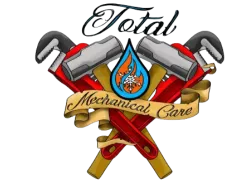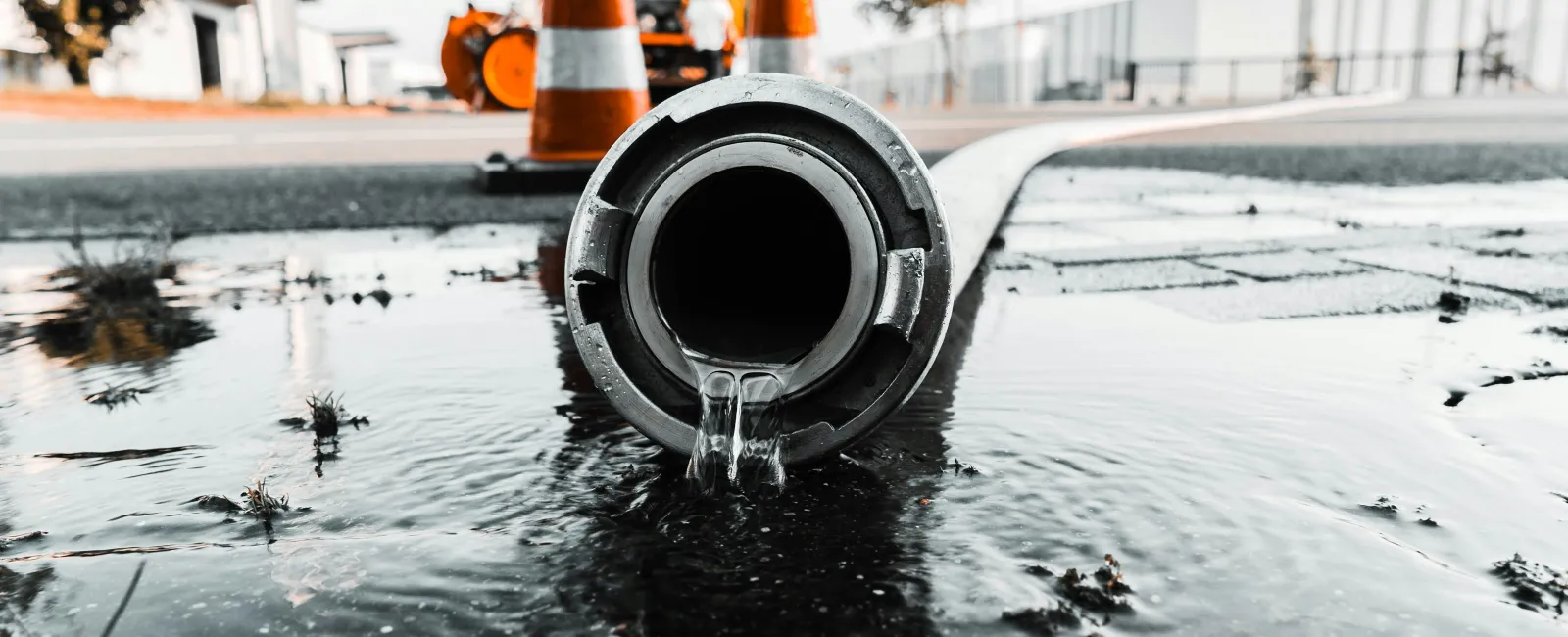October 28, 2025
You step into the shower expecting your usual morning routine, but instead of a strong spray, you get a weak trickle. Or you turn on the kitchen faucet to find that the water barely flows. When your water pressure suddenly drops, it's more than annoying; it's often a warning sign that something in your plumbing system needs immediate attention.
At Total Mechanical Care, we get calls about sudden drops in water pressure almost daily from homeowners across Cumming, Alpharetta, and Roswell. With plumbing roots tracing back to 1923, we've diagnosed thousands of these issues. The good news? Most sudden pressure drops have a clear cause and a solution once you know what you're looking for.
Let's walk through the five most important reasons your water pressure changed suddenly, and what you should do about each one.
1. Your Pressure Regulator (PRV) Is Failing
If your water pressure suddenly drops throughout your entire home, your pressure regulator is the most likely culprit. This valve sits where your main water line enters your home, and its job is to maintain water pressure at safe and comfortable levels. When it fails, pressure can drop dramatically across every fixture in your house at once.
Pressure regulators typically last 7 to 12 years, but North Georgia's hard water and mineral-heavy supply can shorten that lifespan. The diaphragm inside wears out, the springs weaken, or mineral deposits prevent the valve from functioning properly.
Signs your pressure regulator is failing:
- Pressure dropped suddenly throughout your entire home
- Every faucet, shower, and toilet is affected equally
- The problem appeared overnight or over just a few days
- Water flow is weak even when only one fixture is running
What to do:
Test your water pressure using a gauge available at any hardware store. Attach it to an outdoor hose bib and run the water. Normal household pressure should read between 50 and 80 PSI. If you're seeing 40 PSI or lower, your pressure regulator likely needs to be replaced, and this isn't a DIY repair. The regulator must be properly sized and calibrated to your home's plumbing system. Our licensed plumbers in Cumming, Alpharetta, and Roswell typically complete pressure regulator replacements in a few hours with minimal disruption to your daily routine.
2. Your Water Supplier Is Experiencing Issues or Made Changes
Sometimes the problem isn't in your home at all. Municipal water systems conduct maintenance, repair broken mains, or adjust pressure seasonally. If your entire neighborhood experienced the same pressure drop simultaneously, the water authority is likely responsible.
Common municipal causes:
- Broken water mains are under repair
- Scheduled maintenance on pumping stations
- Fire hydrant testing that temporarily reduces pressure
- Emergency repairs that require shutting down sections of the supply
- Seasonal adjustments to handle demand changes
What to do:
Check with your neighbors first. If they're experiencing the same issue, contact your local water authority to ask about known issues or scheduled maintenance. In most cases, pressure returns to normal once work is complete. If you discover that the water authority has permanently reduced pressure, or if you live in a low-pressure zone, you may need to install a water pressure booster system. We can assess your situation and recommend the right solution for consistent pressure throughout your home.
3. Your Pipes Are Leaking
A sudden pressure drop that affects your entire house but not your neighbors often indicates a leak in your main water line or in major supply pipes within your home. These leaks can develop quickly when old galvanized pipes corrode, when frozen pipes thaw and crack, or when tree roots penetrate aging underground lines.
Signs you're dealing with a leak:
- Pressure dropped throughout the house, not just one fixture
- Your water bill jumped unexpectedly
- You notice soggy spots in your yard or unusually green grass patches
- You hear water running even when everything is shut off
- Your water meter keeps spinning when no water is being used
- Water stains appear on walls or ceilings
A leak essentially creates a second outlet for your water before it reaches your fixtures. Water takes the path of least resistance, so lower pressure means less water reaches your taps.
What to do:
Check your water meter immediately. Turn off all water in and around your home, including ice makers and automatic sprinkler systems. Look at your meter. If it's still moving, you leak somewhere. For mainline leaks or major supply line issues, call an emergency plumber in North Georgia immediately. We use leak detection equipment to pinpoint the exact location without tearing up your entire yard or walls. Depending on the severity of the leak and the age of your pipe, you may need to repair the section or replace the entire line to prevent future failures.
4. A Shutoff Valve Isn't Fully Open
This one feels simple, but we see it all the time. If your pressure suddenly dropped throughout your home or in specific areas, someone may have partially closed a shutoff valve. Perhaps during a recent repair, while investigating another issue, or even accidentally.
Where to check for partially closed valves:
- Main shutoff valve where your water line enters the house
- Water meter valve at the street or property line (usually requires water company access)
- Water heater shutoff valves (affects only hot water if closed)
- Individual fixture shutoff valves under sinks and behind toilets
- Washing machine supply valves
- Outdoor hose bib shutoff valves
Even a quarter turn on these valves can significantly reduce flow and pressure downstream. The water meter valve is particularly prone to malfunction after meter readings, repairs, or replacements, when technicians fail to reopen it fully.
What to do:
Walk through your home and check every shutoff valve you can find. Ensure they're fully open, which typically means turning them counterclockwise as far as possible, or with the handle parallel to the pipe. For your water meter valve, check if it is accessible, or contact your water company to have them verify that it's fully open. If you recently had any plumbing work done and pressure changed afterward, this is almost certainly your issue.
5. Your Pipes Are Clogged or Corroded
Over time, mineral deposits, sediment, and corrosion can accumulate in your pipes, restricting water flow and reducing pressure. This usually happens gradually, but the pressure drop can feel sudden when the buildup reaches a tipping point or when a chunk of sediment breaks loose and creates a blockage.
Signs of clogged or corroded pipes:
- Pressure decreased gradually over months, then dropped sharply
- Some fixtures have worse pressure than others
- You see rusty or discolored water
- Older home with original galvanized steel pipes
- Hard water is common in your area (very common in North Georgia)
Galvanized pipes are particularly susceptible to this issue. They corrode from the inside out, and the rust buildup narrows the pipe diameter significantly over a period of 30 to 40 years. Calcium and magnesium from hard water accelerate this process by creating scale deposits that restrict flow.
What to do:
For minor buildup in faucets and showerheads, you can unscrew aerators and showerheads, soak them in white vinegar for an hour, and scrub with a brush. If this doesn't help or if multiple fixtures are affected, the problem is deeper in your supply lines. Corroded or severely clogged pipes typically need professional assessment. In many cases, especially with galvanized pipes in older homes, replacement is the only permanent solution. We can camera-inspect your pipes to show you exactly what's happening inside and recommend the most cost-effective fix.
When to Call a Professional Plumber
Some pressure drops require professional diagnosis and repair. Contact a professional plumber if:
- Water pressure dropped throughout your entire home suddenly
- You suspect a pressure regulator failure
- You've checked valves and they're all fully open, but the pressure is still low
- You notice signs of a leak, like soggy ground, running water sounds, or high bills
- Pressure drop is accompanied by discolored water or strange noises
- Multiple fixtures are affected, and cleaning aerators didn't help
- You have an older home with original galvanized pipes
At Total Mechanical Care, we diagnose water pressure issues quickly and explain your options clearly. Every job is guided by integrity, craftsmanship, and a commitment to getting it done right. Whether you need a PRV replacement, leak detection, or a complete main water line upgrade, we handle the work with minimal disruption to your property.
Don't Ignore Sudden Pressure Changes
Water pressure changes rarely fix themselves. Ignoring the problem can lead to burst pipes due to excessive pressure, water damage from hidden leaks, or simply living with frustratingly low pressure that makes daily tasks harder than they should be.
The good news is that most pressure issues have straightforward solutions once the cause is identified. Start with the simple checks: valves, aerators, and neighbor reports. If those don't reveal anything, it's time to bring in professional help.
You'll know exactly what to expect when you work with us. We provide flat-rate pricing with no surprises, no hidden fees, and no last-minute markups. You get a detailed estimate before any work begins, and we back every job with our 100% satisfaction guarantee.
Ready to restore your water pressure? Or have questions about what might be causing your specific issue? Contact us at Total Mechanical Care. Our emergency plumbing team is available 24/7 to serve homeowners throughout Cumming, Alpharetta, Roswell, and surrounding North Georgia communities. We're here to answer your questions and help you make the best decision for your home and your budget.
Call now or request service online to get started. Our 24/7 emergency plumbers arrive on time, clearly explain your options, and complete the job right the first time.



